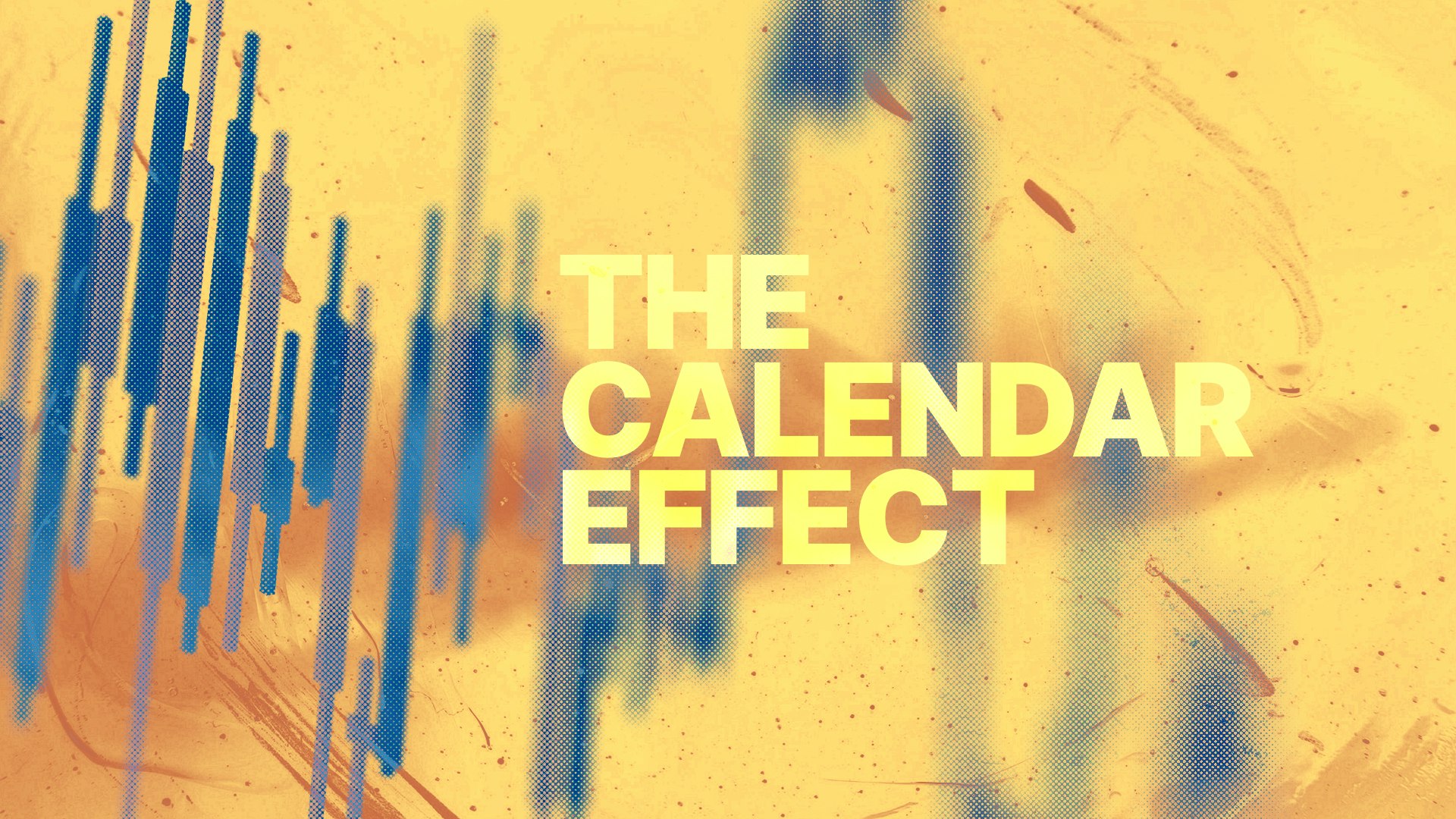Coming soon to the USA! While our services may not be available yet, sign up now to stay in the loop as we bring our innovative crypto solutions to America.
When You Buy Can Affect Your Crypto Exchange Adventures
Your best crypto exchange adventures can be influenced by Santa. Here's how.
In this article...
- The Calendar Effect says that Bitcoin prices repeat patterns every year
- This includes the Santa effect, and Chinese New Year
- Is the Calendar Effect real?

About to log on to CoinJar, your favourite crypto exchange? Well before you jump in, you might want to understand the "calendar effect". But what is it and how will it influence your experience?
For seasoned traditional stock market traders, the “Calendar Effect” is a well-known phenomenon. Asset prices can exhibit predictable patterns based on the time of year. But does this effect hold true in the volatile world of cryptocurrency?
How the Calendar Effect can change your crypto exchange experience
Cryptocurrency markets are still young in comparison to more established financial systems like the stock market and commodity exchanges. Crypto trading is brand new, almost!
Bitcoin, the first cryptocurrency, was only introduced to the world in 2009. And there were no such things as crypto exchanges back then! But even so, some patterns have had time to emerge.
The Santa Effect
The Christmas season brings unique trends to the crypto market.
Festive lights get put up and the spirit of Christmas hits us in the face. And the crypto market often experiences its own seasonal activity.
The Santa Claus rally, often seen in traditional stock markets, also occurs in the crypto market. and other cryptocurrency prices can happen during late December and early January.
People are at home with their families. They have eaten too much, probably have the meat sweats, and they start to get a little bored. (“Hmmm what should I do? Get onto a crypto exchange!”). This generates activity and next thing you know the price may go up.
The Santa Effect is a “sometimes” effect. It is not always upwards for prices. Sometimes, Bitcoin has experienced declines during this period, so be careful. If getting onto a crypto exchange at Christmas, understand that volatility is a thing. Keep an eye on news that could impact market sentiments.
The January Effect
Bitcoin, and the broader crypto market, sometimes see price increases in January. There are a few theories about why this happens.
Tax Time: In many countries, people pay taxes on investments after the year comes to an end. Sometimes, they sell crypto in December to avoid paying taxes on gains. Then, in January, they buy it back, driving the price up.
New Year, New Goals: At the beginning of a new year, people often set financial goals and might decide to invest in crypto as part of that.
Cashed Up: Some people get cash as gifts during the holidays, and they might use some of it to buy crypto in January.
The January effect is a pattern that people have noticed, but it doesn't guarantee that prices will go up every January.
If you think the pattern might repeat, you might want to buy some crypto in December to potentially sell in January. However, remember that it's not a sure thing.
Chinese New Year
Chinese New Year, or the Lunar New Year, can significantly influence cryptocurrency prices. In the weeks leading up to the Chinese New Year, the prices of Bitcoin (BTC) and other major cryptocurrencies often decline (but not always).
For instance, Chinese New Year in 2019, Bitcoin's price dropped from $3,491 to $3,397.
In 2020, its price fell below $8,300 before the Chinese New Year and only recovered at the end of the holiday. In 2021, there was a price increase before the holiday, but a subsequent drop during the festivities. Similarly, in 2022, prices dropped sharply just before the holiday but rose again afterward.
For 2025, the Chinese New Year begins on January 29. It's anticipated that cryptocurrency prices, including Bitcoin, might dip during this period, then recover, but no one knows for sure!
Why does this happen?
One theory is that many people celebrating the Lunar New Year sell some of their cryptocurrency to have spending money for the celebrations.
During the festival, people give “red packets” filled with cash as gifts, which can contain substantial amounts of money.
These packets are given to children, the elderly, service personnel, and even employees from their bosses, making it an expensive holiday for many.
Additionally, during this time, people are often travelling back to their hometowns to celebrate with family, leading to a slowdown in trading activity.
Many factories and businesses close for up to two weeks, reducing overall trading volume as people focus on the festivities rather than on trading cryptocurrencies. While crypto is currently banned in mainland China, it kind of just like it isn’t banned.

April and tax season
Sometimes, the crypto market can see a downturn in April because tax season hits in large crypto-enthusiastic countries like the USA.
When people make money from investments like cryptocurrency, they usually have to pay taxes on those profits. April is when taxes are due in many countries, including the United States.
So, if someone made a lot of money from crypto, they might need to sell some of their holdings to have enough cash to pay their taxes. If many people do this at the same time, it can create downward pressure on prices, causing the market to dip.
Think of it like a big sale happening at the same time. When everyone rushes to sell their crypto to pay taxes, it's like a flood of sellers in the market, which can cause prices to drop temporarily.
It's important to note that this doesn't happen every year, and the severity of the dip can vary.
Northern hemisphere summer slump
Crypto can sometimes see lower trading volumes and stagnant prices during the summer months of the northern hemisphere, possibly due to investors focusing on holiday activities and being outside touching grass. But again it’s not every summer.
Q4 rally
Bitcoin has historically performed well in the fourth quarter. This could be attributed to various factors, including increased institutional interest, time on holidays to dabble on a crypto exchange, and anticipation of new year rallies.
Should you time the market?
While these patterns exist, it's important to remember that crypto markets are notoriously volatile and influenced by numerous unpredictable factors. Trying to perfectly time the market is extremely difficult, even for seasoned traders. Also, remember that crypto markets are young!
Conclusion: Check the Calendar Effect before getting on a crypto exchange
The calendar effect may play a role in crypto markets, but it's not a guaranteed roadmap to success. Careful research is key here. You can see the 5-year performance of cryptos like here. So you can draw your own conclusions!
Frequently asked questions
Do Northern Hemisphere winter holidays affect crypto prices?
The Northern hemisphere winter holidays can have a mixed impact on crypto prices. Reduced trading volumes due to traders taking breaks can increase volatility.
However, the "Santa Claus Rally," observed in traditional markets, sometimes extends to crypto, potentially boosting prices in late December and early January.
The overall effect depends on various factors like investor sentiment and market conditions.
Does crypto drop at Christmas?
Historical data shows both gains and losses during this period. While some years might experience dips due to profit-taking or reduced trading activity, others might see gains due to holiday optimism or the Santa Claus Rally.
Does Christmas affect Bitcoin price?
While some years might see a "Christmas rally," others might not.
Can I use a credit or debit card to deposit crypto or buy Bitcoin on a trading platform?
Many crypto exchanges allow direct purchases with credit/debit cards, but it's important to compare fees, as these can vary between providers.
Alternatively, you can deposit crypto from an external wallet.
How do trading fees on cryptocurrency exchanges impact my profits?
Every time you buy and sell cryptocurrencies like Bitcoin or Ethereum, you'll incur trading fees. These can eat into your profits, especially if you're a frequent trader.
Choose a trading platform with competitive fees and consider the potential impact of the Calendar Effect on your overall costs.
What are the tax implications of buying and selling cryptocurrencies in Australia?
You'll need to report any capital gains or losses on your tax return.
This applies whether you're actively trading or simply buying Bitcoin to hold long-term.
Do all crypto exchanges offer advanced trading features and real-time data?
Not all platforms are created equal. Some are designed for beginners, while others cater to experienced traders with tools like margin trading and in-depth charting.
f you're a serious trader, ensure your chosen exchange provides the features you need to execute your strategy effectively.
Besides Bitcoin and Ethereum, what other cryptocurrencies can I trade on Australian exchanges?
Most Australian exchanges offer a wide variety of digital assets beyond Bitcoin and Ethereum. Research different coins to find ones that align with your investment goals and risk tolerance.
How can I protect my crypto investments from price fluctuations due to the Calendar Effect?
Understanding the Calendar Effect and its potential impact on trade volume can help you make more informed decisions about when to buy and sell cryptocurrencies like Bitcoin.
Diversifying your portfolio and using stop-loss orders can also help mitigate risk.
What is the best time to start trading on a cryptocurrency exchange?
Some traders believe certain days or times of day see higher trade volume on crypto exchanges, potentially leading to better prices. This is known as the Calendar Effect.

Suggested Articles
What is Bitcoin (BTC)? What is "Digital Gold" Used For?
What is Bitcoin? It is a digital currency that can be traded, exchanged, and used as a form of payment independent of central banks and governments.What is Ethereum? What is ETH Used For?
Ethereum is a decentralised blockchain-based open-source software platform that allows for the development of decentralised applications (dApps).What Is Crypto? How do Cryptocurrencies Work?
Crypto has become incredibly popular. But how does this digital currency work? And are there cryptos other than Bitcoin?Browse by topic
Copyright © 2023 CoinJar, Inc. All rights reserved. The products and features displayed on this website are representative of our Australian and UK services and certain features may not be offered to customers residing in the United States, depending on applicable state and federal regulations.
Google Pay is a trademark of Google LLC. Apple Pay and Apple Watch are trademarks of Apple Inc.
This site is protected by reCAPTCHA and the and apply.